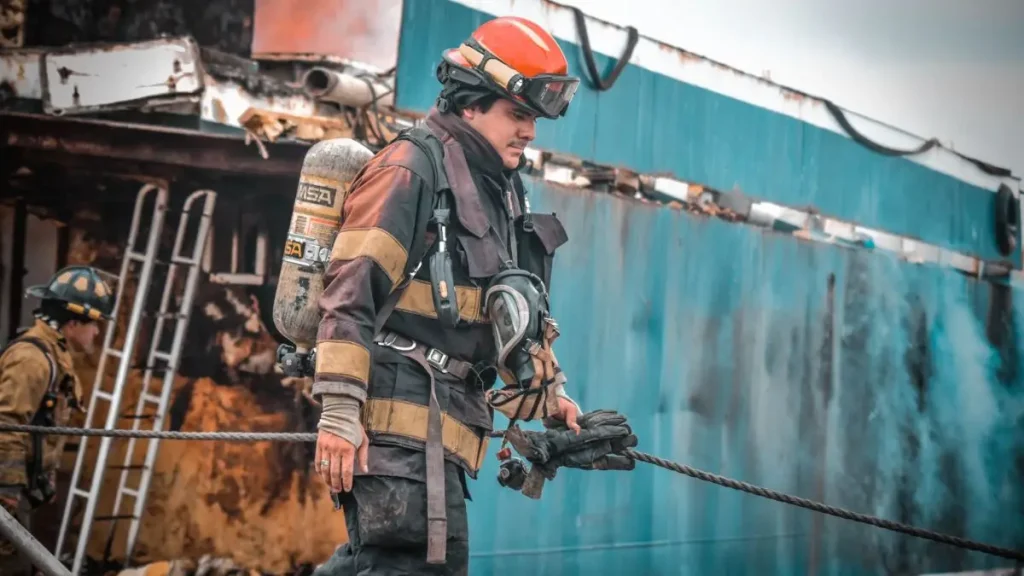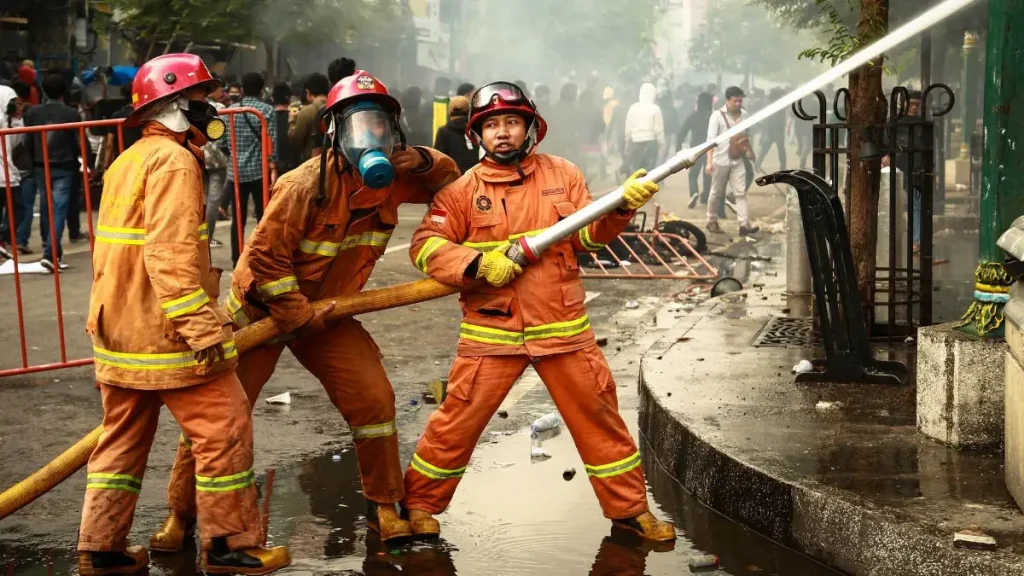Rhode Island Home Damaged as Garage Fire Escalates
I still remember scrolling through the news Wednesday night and seeing the report about a garage fire on Roundway Drive in Coventry. Firefighters rushed to the scene around 6:30 p.m., but by then, the flames had already spread from the garage into the house. Reading about it, I couldn’t help but think about how quickly a routine evening can turn dangerous—and how unprepared any of us might be if it happened at our own home.
The garage was a total loss, and the home itself suffered smoke damage. That detail really struck me because it’s not just property at stake—it’s your sense of safety, your memories, and, in some cases, the pets or belongings that can’t be replaced. While official reports are still investigating the exact cause, one thing is clear: garage fires can escalate faster than most homeowners realize, and the consequences ripple far beyond the initial flames.
If you live in Coventry—or anywhere Rhode Island—this isn’t just a story to skim. It’s a reminder to pause and think: is my garage safe? Are there risks I might be overlooking?
Timeline of the Garage Fire

I can picture the scene clearly: it was Wednesday evening when firefighters were called to Roundway Drive at around 6:30 p.m. The fire had started in the garage, and within minutes, it had begun creeping into the house itself.
According to WJAR, the garage was destroyed, and the home suffered smoke damage.
Watching or reading about an incident like this reminds you just how fast things can spiral. One moment everything seems normal, and the next, your home is under threat. You start thinking: if this happened to me, would I know exactly what to do?
Damage Assessment
The fire left a heavy mark. The garage was a total loss, which is devastating if you consider everything we often store there—tools, bikes, even holiday decorations.
The home itself escaped flames but endured smoke damage, which can linger for months if not treated.
Reading this, I realized that smoke damage is more than just cosmetic. It seeps into furniture, walls, and even your HVAC system.
If this was your home, you’d be facing cleanup costs, insurance claims, and the stress of living in a partially damaged space.
Why Garage Fires Can Spread to Homes?
Garages might seem harmless, but they’re a hidden danger. Most of us store flammable items—paint cans, cleaning chemicals, old gasoline, or even charging batteries for e-bikes and power tools. Combine that with electrical outlets or faulty wiring, and you’ve got a recipe for disaster.
I like to think of your garage as a small, enclosed fire risk zone. If the fire spreads to adjoining walls or the attic, your entire house can be compromised in minutes.
This is especially true for homes like many in Rhode Island, where older construction may not have modern fire barriers. Knowing this changes how you approach everyday storage and safety.
Just like the chimney fire in Smith County which destroyed an entire home, garage fires can escalate rapidly if not contained early
Immediate Steps for Homeowners After a Garage Fire
If this happened at your house, here’s what I’d do first: call your fire department immediately, even if the fire seems contained.
Document every bit of damage for insurance purposes—photos, videos, notes. Check for smoke and structural damage before stepping back in.
I can’t stress enough how vital these first steps are. Many people rush back in too soon or underestimate smoke damage. You need a calm, structured response to protect both your home and your peace of mind.
Even small mistakes can lead to significant damage, as seen in the Harrison House kitchen fire incident, emphasizing the need for documentation and prompt action.
Prevention Tips to Avoid a Garage Fire

Let’s talk about prevention. You can drastically reduce your risk with small, practical steps. Store flammable materials safely and away from electrical outlets. Install smoke detectors in your garage or near living spaces.
Ensure there’s proper fire separation between the garage and the home—think fire-rated doors or sealed wall penetrations.
These aren’t complex measures, but they can save your home. I often ask myself: if I do this today, am I preventing tomorrow’s disaster? That mindset alone can make a huge difference.
Items like lithium batteries have caused costly incidents elsewhere, such as a $475K house fire in Iowa highlighting the importance of safe storage.
Emotional and Community Impact
When I read that three pets were lost in the Coventry garage fire, it hit me hard. It’s not just the property that suffers in a fire—there’s a real emotional toll on families and neighbors. You can’t underestimate the trauma of losing furry family members or even the stress of seeing a neighbor’s home engulfed in smoke.
This is why community awareness matters. Being vigilant about fire safety isn’t just protecting your own home; it’s protecting everyone around you.
Simple conversations with neighbors, checking on fire alarms in nearby homes, and sharing prevention tips can create a safer environment for the entire block.
Many local communities share updates and safety tips in real time—some homeowners even discuss neighborhood fire alerts on WhatsApp groups. Joining such groups can help you stay informed and act quickly if a fire ever breaks out nearby.
What Local Authorities Say About Garage Fires?
According to the Coventry fire department, garage fires often start small but escalate quickly because of flammable materials and structural factors. While the cause of this particular fire is still under investigation, authorities emphasize that quick response and preventive measures make a huge difference.
I’ve learned that listening to experts isn’t just about following rules—it’s about practical action.
You should treat guidance from fire officials as a checklist: ensure detectors work, inspect electrical setups, and create an evacuation plan for your household. Taking these steps today can prevent a catastrophe tomorrow.
Key Takeaways for Coventry Homeowners
Here’s what I want you to remember if you’re reading this as a homeowner: garage fires can happen to anyone, and they escalate fast. Check your garage for flammable materials, maintain smoke detectors, and make sure your home has proper fire separation.
Also, think about emergency planning. Pets, possessions, and even sentimental items are all at risk. Ask yourself: do you have a plan if fire strikes? Being prepared isn’t overreacting—it’s smart, responsible, and protective.
Finally, I’d love to hear from you: have you ever inspected your garage for fire risks, or shared fire-safety tips with your neighbors? Engaging with your community might just be the difference between a near miss and a real disaster.
For more guides on protecting your home from unexpected fire hazards, check out our detailed articles on home fire safety on our website Build Like New.
Disclaimer: The information in this article is based on news reports and public sources. It is intended for general informational purposes and should not replace professional advice. Readers should exercise caution and consult local authorities or experts for specific fire safety guidance.


